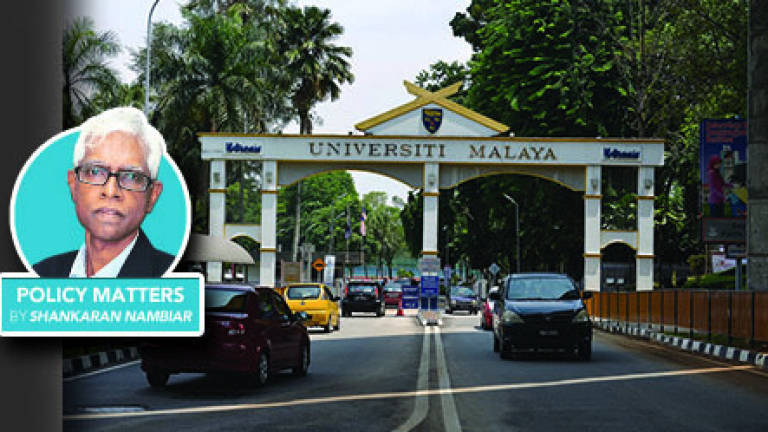Column - Will public universities get on their feet?

THE government has cut funding for public universities – an excellent and inevitable move.
Twenty years ago, nobody would have imagined that public universities would have to take budget cuts. These universities were sacred cows that were protected.
Falling commodity prices, declining external demand and a weak global environment have all conspired to create a softer fiscal situation. Shrinking government revenues have inevitably led to budget cuts for the universities.
The ivory towers that public universities are will slowly crumble unless they re-invent themselves. They will have to learn to generate their own funds. A variety of sources will have to be explored – consultancy projects, university-private sector collaborations in research and development (R&D), and commercialiseable research.
Public universities have engaged in these endeavours, but now the impetus will be greater. Rather, it will have to be greater. It is time to shift the focus.
As befits universities in a developing country with a tight budget, but with ambitions of becoming a developed nation, the vision has to change.
Drastically.
The public universities must move to the front and support the growth of local industries, be they small and medium enterprises or multinationals. They have to use their expertise in food technology to help companies in the industry with their research. Or their expertise in electronics to promote innovations in the semiconductor industry. And so on and so forth.
Hopefully, there will now be a greater sense of urgency to develop industry-university relationships to push companies up the technology frontier.
Public universities can also provide platforms for start-ups. This requires more active cross-cutting activities where the business faculties network with the science and engineering faculties to support budding entrepreneurs.
The universities should come out of their cocoons to link-up with banks and the relevant government agencies to work with entrepreneurs to provide the necessary support.
Universities with their enormous facilities (laboratories, technological and intellectual capital) should be the obvious hub for entrepreneurship development.
Why, even the visual and performing arts can orient themselves to serve market needs.
There is nothing demeaning in working with the market in mind. We are not in hallowed times when studying at Oxford was about reflecting on theological and philosophical questions.
Besides, Malaysian philanthropists would rather contribute to a chair in Harvard than to one at the University of Malaya. So what choice is there.
For those academics who have neither any interest in industrial-university networks or start-ups, there is the option of offering R&D expertise. Only, it has to be saleable.
Comparisons with the US are pointless. We do not have huge defence projects (remember, we buy submarines), we do not have huge pharmaceutical companies (we do have manufacturers of generic medicines), and we do not have Nasa (but we do have an LRT system that frequently has glitches).
The key message is this: There are economic and technical activities that need solutions. And there is money to be made here.
Universities can provide these solutions.
There is no sense in faulting the government. Opening up to the market was long overdue.
At any rate, with all the government funding they received, public universities did not produce Nobel laureates. I do not think this is what a university in a developing country has to do. But I do fault the government for assisting public universities in fantasising about creating Nobel prize winners.
Now, the public universities have to get real, get on their feet, and start delivering.
Shankaran Nambiar is author of Malaysia in Troubled Times. The views expressed in this article are his own. Comments: letters@thesundaily.com